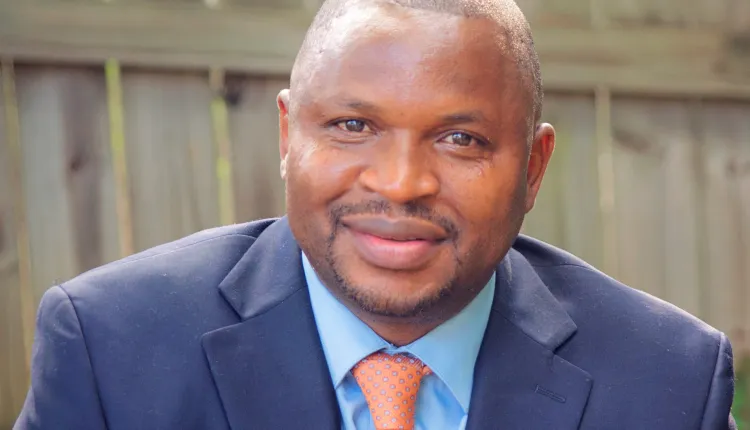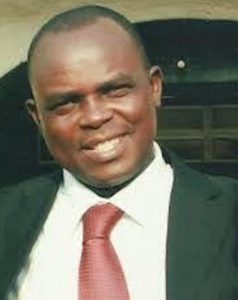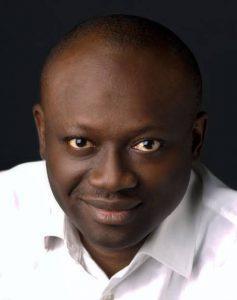Minister of Budget and National Economic Planning Abubakar Atiku Bagudu said last week Thursday that Nigeria is so stone-broke, so impotently bankrupt it’s barely surviving. “There is no money anywhere in the country,” he said. “The government is just managing to pay salaries.” Oh really? Is the government also “managing” to fund the loud, in-your-face, insensitive hedonism of people in power?
Being “broke” is a boringly familiar refrain of APC governments. Type “Nigeria is broke” on Google, and you’ll find matches for it from at least 2016. Maybe PDP governments also made similar claims in the past, but my admittedly perfunctory Google search didn’t throw up any results. It doesn’t matter, though, because there are no political parties in Nigeria. There are only elites who are in power and elites who are out of power.
Lamentations about being “broke” while engaging in callously conspicuous consumption reminds me of a social media meme that trended a while ago in the United States. It’s called “not broke but broque.” “Broke,” we all know, is the informal term for being strapped for cash. “Broque,” on the other hand, is a playful lexical and semantic contortion of “broke.”
Also called “bougie broke,” broque means being heedlessly lavish and showy in expenditures while claiming to be cash-strapped. In other words, it’s reckless profligacy and financial irresponsibility amid privation. Applied to Nigeria, it’s the exponential rise in multiple subsidies for fat cats in and out of government amid an ostensible financial crunch.
It recalls my favorite Mahatma Ghandhi aphorism: “There is enough for everybody’s need and not for everybody’s greed.” Nigeria isn’t “broke” because of the need of everyday citizens; it’s “broke” because of the greed of the political elites. There is enough for everyone’s needs but there isn’t—and there won’t ever be— enough for the endlessly insatiable greed of the political elites and their underlings.
When government officials say Nigeria is “broke,” they often only mean that the finances of the nation have dwindled down to the point that meeting basic, age-old governmental obligations like paying starvation wages to workers is threatening to cause them to give up an inch of the extortionate indulgences they habitually luxuriate in.
If paying the miserly N30,000 a month to the federal minimum wage worker might lead to a little dip in the funds that finance the epicurean pleasures of people in government and their cronies, then Nigeria is “broke.”
For example, although every member of the Federal House of Representatives will get a car worth N160 million this year, the House voted Wednesday to defeat Edo State Rep. Anamero Dekeri’s motion on the “Need to compel JAMB, WAEC and NECO examination bodies to register students for free in the 2023-2024 examination exercise,” presumably because Nigeria is too “broke” to afford to fund the education of its youth who have the misfortune to be sired by poor parents.

And, although Nigeria is barely paying salaries and is too poor to fund fuel subsidies (about the only benefit poor people derived from the government), N57.6 billion will be spent this year to buy foreign luxury cars for legislators.
The Chairman of the Committee on Senate Services by the name of Sunday Karimi told newsmen on Tuesday that the price tag for the vehicles is steep because they are foreign, not locally manufactured cars, which are needed because of their reliability and durability. “These vehicles that you see [referring to their current cars that need to be replaced], go to Nigeria roads today, If I go home once, my senatorial district, I come back spending a lot on my vehicles because our roads are bad,” he said.
Then he threw a challenge to critics who are fixated on the luxuries of National Assembly members while ignoring the more extravagant opulence that members of the executive branch bask in. “We know ministers with more than three Land Cruisers, Prado, and other vehicles, and Nigerians are not asking them questions. Why us?” I think that’s a fair point.
In every budget, the Nigerian government allocates funds for the purchase of new, usually foreign, cars for people in the executive branch. I’ve always wondered what happens to the one-year-old cars that are replaced every year. Where do they go? Who gets them? No country in the rich, industrialized world buys new cars for government officials every year. But a perpetually “broke” country does.
Recall, too, that Nigeria has one of the world’s most expensive presidential air fleets. No one seems to know for certain how many aircraft we have in the presidential fleet, but estimates range from 10 to 7. After our unceasing reminders to Buhari— in the early days of his first term— of his promise to sell off the aircraft in the fleet, he lied to the world that he had sold two. He lied to repel continual public scrutiny.
Most importantly, though, a November 17, 2015, statement from the Buhari administration admitted that it cost the nation $15 million to maintain the presidential air fleet in just six months. That was how much it cost the British government to buy a dedicated plane for the British Prime Minister and the British Royal family in 2015.
Spending $30 million a year to maintain a presidential air fleet (if that cost hasn’t increased since then) is grossly offensive to basic decency for a country that interminably whines about being “broke” when it’s called upon to meet its obligation to its citizens. This is particularly unconscionable because presidential jets have now been converted to objects of transportational vanity by the family of the president.
Buhari inaugurated what, in a January 11, 2020, article I called the “Uberization and Keke NAPEPization of Presidential Jets.” In January 2020, it came to light that Buhari’s daughter, Hanan, paid a visit to Bauchi with the presidential jet “on a study tour… as part of her academic programme” at a London university where she was enrolled for a master’s degree, according to Premium Times!
It also turned out that Hanan had actually used TWO presidential jets in the past to visit Kebbi State for her BA project on the Gwandu emirate. There was no precedent for that level of brazen abuse of the office of the president.
As I wrote at the time, “None of Obasanjo’s children ever used a presidential jet for personal vanity trips. We definitely never heard of any Yar’adua children using a presidential jet for private functions. And most people never even knew Jonathan had children. We barely heard of or saw them, and surely never ever read that any of them used a presidential jet without their dad in it.”
Tinubu has continued from where Buhari left off. His son, Seyi, flew on a presidential jet—and flaunted it—to watch a Polo game in Kano. Apparently, he has also turned our presidential jets to his Uber.
Also consider that although the Nigerian government always says it’s “broke,” it budgets billions of naira every year to feed the president and the vice president. In the United States, on the other hand, presidents pay for their own food from their pockets. As Gary Walters, a former White House Chief of Staff, told the (London) Guardian, “All those things that are personal in nature that we all pay for, the first family pays for.”
“It’s just the tradition that it’s continued on through time that the president will pay for their own food and, I guess, if they needed something for the house that was personal. Toothpaste, cologne or whatever,” William Bushong, a White House historian, told the Guardian.
“Nobody had told us that the president and his wife are charged for every meal, as well as for such incidentals as dry cleaning, toothpaste and other toiletries,” Ronald Reagan’s wife was reported to have said in 1981.
If Nigeria is truly “broke,” let it reflect this from the people in power. For starters, reduce the number of ministers to just 36. Cars for ministers and legislators should be replenished every four years, not every year, and should be locally manufactured.
I have more suggestions, but I know it’s wishful thinking to expect that the elite will change their ways. Nigerians are not even interested in demanding accountability from their oppressors. Why should the oppressors willingly give up their sinecure? Frederick Douglass was right when he said, “Power concedes nothing without a demand. It never did and it never will.”
Prof. Kperogi, a former Editor with Daily Trust and former presidential speech writer, teaches communication at an American university.





















